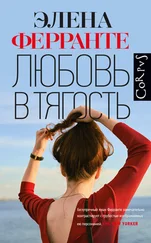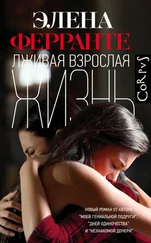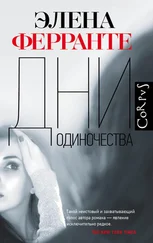2.
As soon as Roberto stopped speaking, my aunt dragged me over to Giuliana. I was struck by how she had changed; her beauty seemed infantile to me. She has no makeup, I thought, she’s not wearing a woman’s colors, and I felt uneasy about my short skirt, my lipstick and heavy eye makeup, my low neckline. I’m out of place, I said to myself, while Giuliana whispered: I’m so happy to see you, did you like him? I murmured a few confused words of compliments for her, enthusiasm for her boyfriend’s words. Let’s introduce her to him, Vittoria interrupted, and Giuliana led us to Roberto.
“This is my niece,” my aunt said with a pride that increased my embarrassment, “a really smart girl.”
“I’m not smart,” I almost shouted and held out my hand, hoping that he would at least touch it.
He took it in his without squeezing it, he said what a pleasure with an affectionate look, while my aunt reproached me: she’s too modest, the opposite of my brother who was always presumptuous. Roberto asked me about school, what I was studying, what I was reading. A few seconds passed, I had the impression his questions weren’t just something to say, I froze. I stammered something about the boredom of classes, about a difficult book I’d been reading for months, it would never end, it was about the search for lost time. Giuliana said to him in a whisper: they’re calling you, but he kept his eyes on mine, he was amazed that I was reading a book both beautiful and complicated, he turned to his fiancée: you said she was smart, but she’s really smart. My aunt was filled with pride, she repeated that I was her niece, and meanwhile a couple of smiling parishioners gestured, pointing to the priest. I wanted to find some words that would strike Roberto to his depths, but my head was empty, I couldn’t find anything. And he was already being dragged away by the very warmth he had inspired, he said goodbye to me with a gesture of regret, and ended up in a large group with Don Giacomo.
I didn’t dare follow him even with my eyes, I stayed beside Giuliana, who seemed radiant. I thought again of the framed picture of her father in Margherita’s kitchen, the flame of the small flashing light that illuminated his pupils, and I found it disorienting that a young woman could carry in herself the features of that man and yet be beautiful. I envied her: her slim body in a beige dress and her clear face radiated a joyous strength. But when I first met her that energy had been expressed in a loud voice and exaggerated gestures; now instead Giuliana was serene, as if the pride of loving and being loved had tied up with invisible threads her exuberant manner. She said in a forced Italian: I know what happened to you, I’m very sorry, I feel for you. And she took my hand in hers as her boyfriend had just done. But I wasn’t annoyed, I talked to her sincerely about my mother’s suffering, even if my most vigilant self never lost sight of Roberto, I was hoping he would look for me with his gaze. He didn’t, and I realized that he spoke to everyone with the same cordial curiosity he had shown toward me. He didn’t hurry, but detained his interlocutors and behaved in a way that caused those who crowded around just to talk to him—to draw on the kindness of his smile, on the beauty of his face nourished by its lack of harmony—to gradually start talking to others as well. If I went over to him, I thought, he would surely give me room, too, he would lead me into some discussion. But then I would be forced to express myself more articulately, and he would right away realize that it wasn’t true, I’m not smart, I don’t know anything about the things he cares about. So I was gripped by unease, to insist on talking to him would humiliate me, he would say: how ignorant that girl is. And suddenly, while Giuliana was still talking to me, I said to her that I had to go. She insisted that I should come and have lunch at her house: Roberto is staying, too , she said. But now I was frightened, I wanted literally to escape. I left the church quickly.
Once I was outside, in the square, the fresh air made me dizzy. I looked around as if I had come out of a theater after a powerfully absorbing movie. Not only did I not know how to get home but I didn’t care about getting there. I would have stayed here forever: slept under the portico, neither eating nor drinking, letting myself die thinking of Roberto. At that moment, no other affection or desire mattered to me in the least.
But I heard someone calling my name: it was Vittoria, and she joined me. She used her most cloying tones to try to keep me, until she gave up and explained what I had to do to get back to San Giacomo dei Capri: the metro takes you to Piazza Amedeo and there you get the funicular, then once you’re at Piazza Vanvitelli you know how to go. When she saw me in a daze—what is it, you didn’t understand?—she offered to take me home in the 500, even though she had to go to lunch at Margherita’s. I politely refused, she started talking to me in exaggeratedly sentimental dialect, smoothing my hair, holding my arm, kissing me on the cheek a couple of times with wet lips, and I was even more convinced that she wasn’t a vengeful gorgon but a poor, lonely woman who wanted affection and who at that moment loved me especially because I had made her look good in Roberto’s eyes. You were great, she said, I’m studying this, I’m reading this other thing, great, great great. I felt guilty toward her, at least as much as my father surely did, and I wanted to make up for it, I reached into the pocket where I had the bracelet and offered it to her.
“I didn’t want to give it to you,” I said, “it seemed to me that it was mine, but it belongs to you and no one but you should have it.”
She wasn’t expecting my gesture, she looked at the bracelet with evident annoyance, as if it were a little snake or a bad omen. She said:
“No, I gave it to you, for me it’s enough if you love me.”
“Take it.”
In the end, she accepted it, unwillingly, but she didn’t put it on her wrist. She stuck it in her purse and stood at the bus stop holding me tight, laughing, singing, until the bus arrived. I went up the steps as if each one were conclusive and I were about to make a surprise entrance into another story of mine and another life.
I’d been on the bus for a few minutes, sitting next to the window, when I heard insistent honking. I saw that Rosario’s convertible had pulled up beside the bus in the passing lane. Corrado was waving, shouting, get off, Giannì, come on. They had been waiting for me, patiently hiding somewhere or other, all the time imagining that I would satisfy their every desire. I looked at them with sympathy, they seemed tenderly insignificant as they went by in the wind. Rosario, driving, gestured to me slowly to get off, Corrado continued to shout: we’ll wait for you at the next stop, we’ll have fun, and meanwhile he cast commanding glances at me, hoping that I would obey him. When I smiled absently and didn’t respond, Rosario, too, looked up to figure out what I meant to do. I shook my head no only to him, told him, moving my lips: I can’t.
The convertible accelerated, leaving the bus behind.
3.
My mother was surprised that the trip to Caserta had lasted such a short time. What in the world, she asked idly, you’re already back, did something bad happen, did you fight? I could have not answered, gone to shut myself in my room as usual, put on some loud music, read and read and read about lost time or anything, but I didn’t. I confessed to her right away that I hadn’t gone to Caserta but to see Vittoria, and when I saw that she turned yellow with disappointment, I did something I hadn’t done for several years: I sat on her lap with my arms around her neck and kissed her lightly on her eyes. She resisted. She murmured that I was grown up and was heavy, she chastised me for the lie I’d told, for how I was dressed, the vulgar makeup, holding me tight around the waist with her thin arms. After a while, she asked me about Vittoria.
Читать дальше
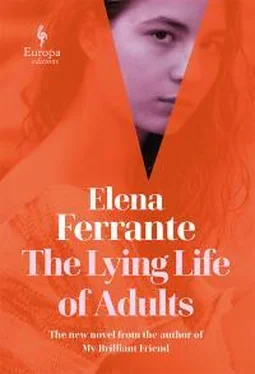
![Элена Ферранте - История о пропавшем ребенке [litres]](/books/32091/elena-ferrante-istoriya-o-propavshem-rebenke-litres-thumb.webp)
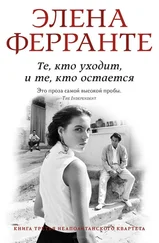
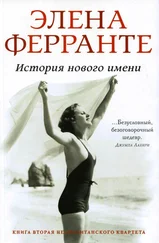
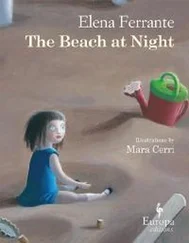
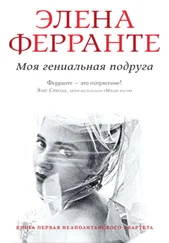
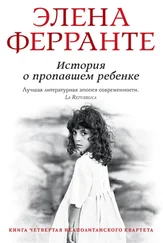
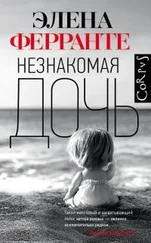
![Элена Ферранте - Дни одиночества [litres]](/books/404671/elena-ferrante-dni-odinochestva-litres-thumb.webp)
